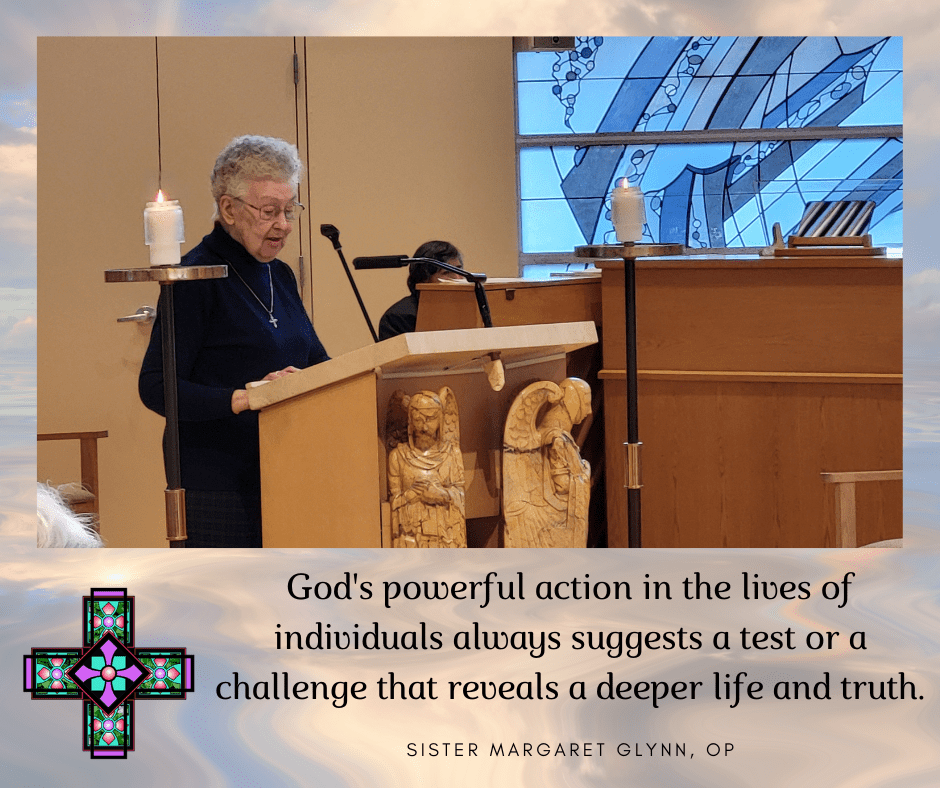
Today's readings recount two radically different experiences of God. One touches on the gruesome practice of child sacrifice to a relentless and vengeful God, the other a moment of revelation where the divinity of the Son is both seen and heard. Each in its own way is one of the great stories of the Judeo-Christian tradition.
Jewish Commentators call this episode from the Book of Genesis the "binding" of Isaac. To me, this is a better term than "sacrifice" usually employed by Christian commentators, for Isaac was not sacrificed, nor did God ever intend it. The episode is called a test for Abraham, much as the Lord tested the people of Israel in the desert as they journeyed to the Promised Land.
We learn at the conclusion that the test was to show that Abraham feared God. Biblical fear of the Lord remains one of the most difficult concepts for us to understand. How exactly do we fear a God of love and compassion? One way we can understand this attitude is to suggest that it emerges from a right understanding of God's true nature, God's care for the poor and oppressed God's justice in favor of the downtrodden. God's mercy does not ignore wrongdoing against the weak, and God's kingdom will express God's justice as well as his compassion and mercy.
The Transfiguration follows Peter's confession that Jesus is the Messiah, and Jesus' announcement of his impending suffering, crucifixion, and resurrection. His future suffering and glory are very much in view as he appears, mystically transformed, on Mount Tabor with Moses and Elijah, the greatest figures of the Hebrew Testament. The heavenly voice calls Jesus "the beloved", a title reminiscent of Isaac, the beloved of Abraham. Peter's frightened question to Jesus about the tents and the disciples' confusion about the resurrection of the dead show that they were not ready to grasp the real implication of Jesus' identity so bravely proclaimed by Peter. It was one thing for the apostles to accept that Jesus was God's anointed; it was quite another for them to accept that Jesus' destiny included the cross.
Both the first reading and the Gospel text include the element of confusion. How can God give elderly couple a son, then threaten so cruelly to take him back? How can God send his Son and show Him in glory, only to have the Son announce that his destiny is to suffer and die? God's wisdom and his providence, the way God chooses to act seem beyond our understanding both in the Scriptures and even in the events of our daily lives. How can thousands die in natural disasters, millions in the catastrophe of war without some divine response? And in our personal lives, there remains the experience of pain and suffering, unfulfilled and unhappy relationships, rash judgements, and misunderstandings.
The scriptures and our lives offer no easy answers to the great mysteries. In the attitude of faith, and in our relationship with God in Jesus, they point us in the right direction, showing that there is a greater context. The search for meaning continues in our own lives as much as in the lives whose stories are recounted in the scriptures. By its very nature, the season of Lent gives us the sacred space to explore the mystery of God in history and in our experience.
Today's readings convey particularly the sense of being on a spiritual journey. Abraham walked three days with Isaac to Mount Moriah. Jesus and his disciples were on their way to Jerusalem. God's powerful action in the lives of individuals always suggests a testing or a challenge. We share our own Lenten journey with each other. We owe it to ourselves to ask the hard questions about our faith in God and the Church.
Like the season of Lent as a whole, this Sunday's readings challenge any complacency in our religious and community lives. Abraham struggled with God, Peter stood confused in the face of God's glory, and we deal daily with each other in Community life. Confusion, awe, fear, even anger are all God-given human emotions and as such need to be brought into play in our relationship with God and each other. Can we bring all that we are, all that we feel, both good and bad, to our prayerful relationship with God and each other? Jacob wrestled through the night with an angel. Is our spirituality important enough to us to make us wrestle with God and each other?
